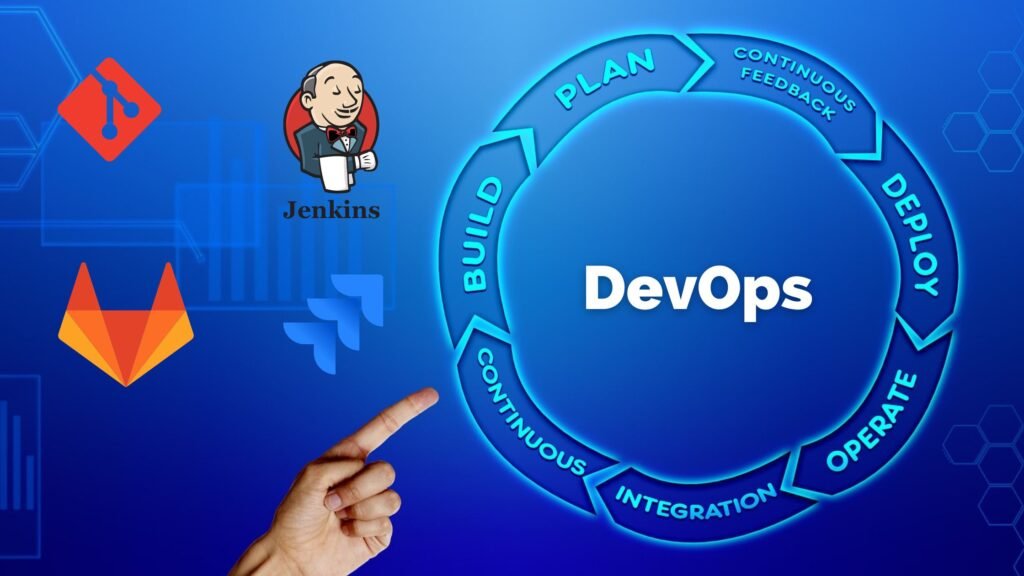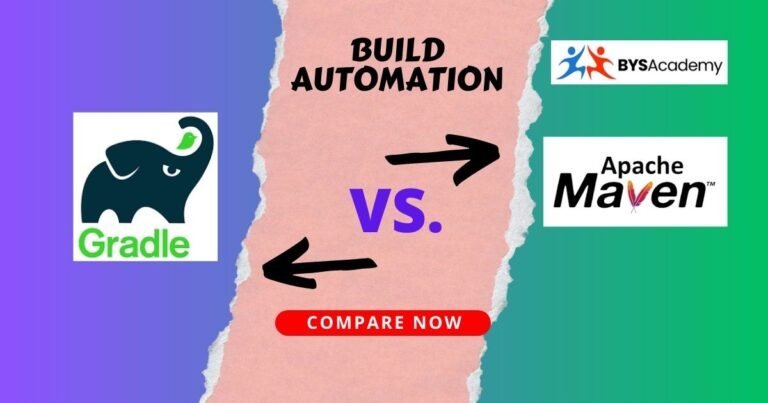If you’re just starting out in the world of software development and IT operations, the term “DevOps” might seem like just another buzzword in a field full of them. But DevOps is much more than a buzzword – it’s a revolutionary approach to software development and IT operations that has transformed the way organizations build, deploy, and maintain software.
DevOps is all about breaking down the barriers between development and operations teams and creating a culture of collaboration and continuous improvement. By combining the strengths of both teams, DevOps enables organizations to deliver high-quality software faster and more reliably than ever before.
But if you’re new to DevOps, it can be hard to know where to start. That’s why we’ve put together this comprehensive beginner’s guide to DevOps. We’ll cover everything you need to know to get started with DevOps, from the key principles and practices to the tools and technologies you’ll need to master. So whether you’re a software developer, IT operations professional, or just someone interested in learning more about DevOps, read on to discover what makes DevOps such a game-changer in the world of software development.
What is the meaning of DevOps?
At its core, DevOps is a combination of two words: “development” and “operations.” As you might guess, it refers to the integration of these two critical areas of software delivery. In a traditional development environment, developers write code and then hand it off to the operations team to deploy and manage in production. This can lead to a lot of inefficiencies and miscommunications between the two teams, resulting in delays, errors, and unhappy customers.
DevOps seeks to solve this problem by bringing developers and operations teams together into a single, collaborative team. By breaking down the walls between these two areas, DevOps enables organizations to deliver software faster, with fewer errors, and at a lower cost.
But DevOps is more than just a philosophy – it’s a set of practices and tools that enable this integration. These practices include continuous integration, continuous delivery, infrastructure as code, and monitoring and logging. And the tools used in DevOps include Git, Jenkins, Docker, and Kubernetes, among others.
Real-world examples of companies that have successfully implemented DevOps include Amazon, Netflix, and Etsy. Amazon famously deploys code every 11.6 seconds, thanks in large part to its DevOps practices. Netflix, meanwhile, has been able to dramatically reduce downtime and improve its customer experience through its DevOps initiatives. And Etsy has built a reputation for fast, reliable, and high-quality software delivery, thanks to its focus on DevOps principles.
Understanding the DevOps Lifecycle
The DevOps lifecycle is a continuous process that spans the entire software delivery pipeline. It consists of several stages, including:
- Plan
- Setting goals and objectives
- Prioritizing features
- Creating a roadmap for development
- Develop
- Writing and testing code using continuous integration tools
- Ensuring that the code is functioning correctly and doesn’t introduce any new bugs
- Test
- Deploying code to a testing environment
- Evaluating and testing the code by the operations team
- Catching any errors or issues before the code is deployed to production
- Deploy
- Deploying code to production in a controlled and automated manner
- Using tools like Docker and Kubernetes to ensure that the deployment process is fast, reliable, and repeatable
- Monitor
- Monitoring the production environment to ensure that the code is performing as expected
- Catching any issues that may arise

Real-world examples of companies that have successfully implemented the DevOps lifecycle include Microsoft, which has used DevOps practices to improve its Azure cloud platform, and Nordstrom, which has embraced DevOps to increase the frequency of its software releases and improve its overall customer experience.
In short, the DevOps lifecycle enables organizations to deliver high-quality software faster and more efficiently than ever before. By embracing a culture of collaboration and communication and using tools like continuous integration and delivery, DevOps enables teams to work together seamlessly and deliver software that meets the needs of customers and the business.
How do Agile and Devops Interrelate?
Agile and DevOps are two methodologies that are commonly used in software development. While they are different, they are often used together to help organizations deliver high-quality software faster.
Agile is a software development methodology that focuses on delivering working software in small, incremental releases. It emphasizes collaboration, flexibility, and customer feedback, enabling teams to adapt quickly to changing requirements and deliver software that meets the needs of customers.
DevOps, on the other hand, is a methodology that focuses on improving collaboration and communication between development and operations teams. It aims to streamline the software delivery process by breaking down silos and automating as much of the process as possible.
While Agile and DevOps are different methodologies, they are often used together because they complement each other well. Agile enables teams to quickly deliver working software in small increments, while DevOps enables teams to deploy that software quickly and reliably to production.
Here are some of the key differences between Agile and DevOps:
| Agile | DevOps |
|---|---|
| Focuses on delivering working software in small, incremental releases | Focuses on improving collaboration and communication between development and operations teams |
| Emphasizes flexibility and customer feedback | Aims to streamline the software delivery process by breaking down silos and automating as much of the process as possible |
| Enables teams to adapt quickly to changing requirements | Enables teams to deploy software quickly and reliably to production |
| Helps teams deliver software that meets the needs of customers | Helps teams deliver software that meets the needs of the business |
| Is typically used in the development stage of the software delivery process | Is typically used in the deployment and operations stages of the software delivery process |
DevOps Culture and Collaboration
DevOps is more than just a set of tools and practices – it’s also a culture of collaboration and continuous improvement. DevOps culture emphasizes the importance of breaking down silos and fostering collaboration between different teams, including developers, operations, and security professionals.
One key aspect of DevOps culture is a focus on shared responsibility. Rather than assigning blame for issues that arise, DevOps teams work together to identify and resolve problems as quickly as possible. This requires a culture of trust and open communication, where team members feel comfortable sharing their ideas and opinions.
Another important aspect of DevOps culture is a commitment to continuous learning and improvement. DevOps teams are always looking for ways to automate and streamline processes, and to identify and eliminate bottlenecks in the software delivery pipeline.
A great example of DevOps culture and collaboration in action is the “Blameless Post-Mortem” process. When a failure occurs in the system, rather than pointing fingers and assigning blame, DevOps teams conduct a post-mortem analysis to identify the root cause of the issue and implement changes to prevent it from happening again. This process fosters a culture of continuous improvement and learning, and helps to build trust and collaboration among team members.
By embracing a culture of collaboration and continuous improvement, DevOps teams can deliver software faster and more reliably, while also improving the overall quality of the software and user experience.
Where to Start with DevOps?
If you’re interested in learning DevOps, it can be overwhelming to know where to start. But don’t worry – there are plenty of resources and learning paths available to help you get started.
First, it’s important to understand the basics of DevOps, including its goals and key principles. This will give you a solid foundation to build upon as you delve deeper into specific topics.
Once you have a basic understanding of DevOps, it’s a good idea to focus on one or two areas at a time. For example, you might start by learning about Continuous Integration and Continuous Delivery (CI/CD) or Infrastructure as Code (IaC), two key concepts in DevOps.
There are many resources available for learning DevOps, including online courses, tutorials, and books. You can also join online communities and forums to connect with other learners and experts in the field.
Ultimately, the key to learning DevOps is to stay curious and keep learning. DevOps is a rapidly evolving field, so it’s important to stay up-to-date on new tools, techniques, and best practices. With persistence and dedication, you can develop the skills and knowledge needed to become a successful DevOps practitioner.
Continuous Integration and Continuous Delivery (CI/CD)
CI/CD is a set of practices that allows developers to automate the process of building, testing, and deploying software. The idea behind CI/CD is to catch errors and issues early in the development process, so that they can be fixed before they become bigger problems. By automating these processes, developers can reduce the time and effort required to deliver new features and updates, while also improving the overall quality of the software.
Infrastructure as Code (IaC)
IaC is the process of managing and provisioning infrastructure resources through code, rather than manually configuring them. This allows DevOps teams to automate the process of provisioning, managing, and updating infrastructure, reducing the risk of errors and ensuring consistency across environments. IaC also makes it easier to scale infrastructure resources up or down as needed, in response to changing demand.
DevOps Tools Every Developer Should Know About
DevOps tools are essential for streamlining software development and deployment processes, and it’s important for developers to know about the top tools in order to stay competitive in the industry. Here are some of the top DevOps tools that every developer should know about:
- Version Control Tools: These tools allow developers to manage and track changes to code repositories, ensuring that everyone is working with the same version of the code. Examples include Git, Subversion, and Mercurial.
- Continuous Integration/Continuous Deployment (CI/CD) Tools: CI/CD tools automate the process of building, testing, and deploying software, allowing developers to catch errors early in the development process. Popular tools include Jenkins, Travis CI, and CircleCI.
- Containerization Tools: Containerization tools allow developers to package their applications and dependencies into containers, making it easier to deploy applications across different environments. Examples include Docker and Kubernetes.
- Configuration Management Tools: These tools allow DevOps teams to manage and automate infrastructure configuration, making it easier to maintain consistency across environments. Examples include Puppet, Chef, and Ansible.
- Monitoring and Logging Tools: Monitoring and logging tools allow developers to track the performance of their applications and infrastructure, and to quickly identify and resolve issues. Examples include Nagios, ELK Stack, and Prometheus.
By leveraging these DevOps tools, developers can streamline their workflows, improve the quality of their software, and deliver updates to users more quickly and reliably.
Devops Certifications
If you’re interested in a career in DevOps, you may be wondering about the value of getting certified. DevOps certifications can be a great way to demonstrate your skills and knowledge to potential employers, and they can also help you stay up-to-date with the latest trends and best practices in the field. Here are some of the most popular DevOps certifications:
- AWS Certified DevOps Engineer: This certification is designed for professionals who work with AWS services and want to demonstrate their ability to automate deployments, implement CI/CD pipelines, and manage infrastructure using AWS tools.
- Certified Kubernetes Administrator (CKA): This certification is designed for professionals who work with Kubernetes and want to demonstrate their ability to design, deploy, and manage Kubernetes clusters.
- Certified Jenkins Engineer: This certification is designed for professionals who work with Jenkins and want to demonstrate their ability to automate software builds, testing, and deployment using Jenkins.
- Puppet Certified Professional: This certification is designed for professionals who work with Puppet and want to demonstrate their ability to manage infrastructure using Puppet’s configuration management tools.
- Microsoft Certified: Azure DevOps Engineer Expert: This certification is designed for professionals who work with Microsoft Azure DevOps and want to demonstrate their ability to design and implement DevOps practices using Azure.
By getting certified in a specific DevOps technology or tool, you can demonstrate your expertise and differentiate yourself from other job candidates. However, it’s important to remember that certifications are not a substitute for hands-on experience and practical skills. So while DevOps certifications can be valuable, they should be viewed as part of a broader learning journey.
The Future is DevOps: Top Job Roles and Skills in High Demand
As businesses increasingly adopt DevOps practices, the demand for DevOps professionals is skyrocketing. If you’re interested in pursuing a career in DevOps, here are some of the top job roles and skills that are in high demand:
- DevOps Engineer: DevOps Engineers are responsible for managing and automating the entire software development lifecycle, from code development to deployment and maintenance. They have expertise in coding, automation, and infrastructure management.
- Site Reliability Engineer (SRE): SREs are responsible for ensuring that applications and systems are reliable, scalable, and performant. They have expertise in automation, monitoring, and incident response.
- Cloud Architect: Cloud Architects design and implement cloud-based solutions and infrastructure. They have expertise in cloud platforms such as AWS, Azure, and Google Cloud, as well as infrastructure as code tools such as Terraform and CloudFormation.
- Automation Engineer: Automation Engineers design, build, and maintain automated testing and deployment pipelines. They have expertise in tools such as Jenkins, GitLab, and CircleCI.
- Security Engineer: Security Engineers are responsible for ensuring the security and compliance of systems and applications. They have expertise in security frameworks such as PCI DSS, HIPAA, and SOC 2, as well as security tools such as Nessus and Metasploit.
In addition to these job roles, there are several key skills that are in high demand in the DevOps field. These include:
- Automation: The ability to automate tasks and processes using tools such as Ansible, Puppet, and Chef.
- Containerization: The ability to work with containerization technologies such as Docker and Kubernetes.
- Infrastructure as Code: The ability to manage infrastructure using code, using tools such as Terraform and CloudFormation.
- Collaboration: The ability to work collaboratively across teams, using tools such as Git and Jira.
- Continuous Integration and Delivery: The ability to design and implement CI/CD pipelines using tools such as Jenkins, GitLab, and CircleCI.
If you’re interested in pursuing a career in DevOps, focusing on these job roles and skills can help set you up for success in this rapidly growing field. It’s also worth looking at most frequently asked DevOps interview questions.
Conclusion
In conclusion, DevOps is not just a set of practices or tools, but a cultural shift that emphasizes collaboration, automation, and continuous improvement. By breaking down the traditional silos between development and operations teams, DevOps enables organizations to deliver software faster, with greater reliability and efficiency.
While the concept of DevOps may seem overwhelming at first, it’s important to remember that it’s a journey, not a destination. By starting with small, incremental changes and focusing on building a culture of collaboration and continuous improvement, you can begin to reap the benefits of DevOps in your organization.
Whether you’re a seasoned IT professional or just starting out in your career, understanding DevOps is essential for staying competitive in today’s fast-paced technology landscape. By investing in your skills and knowledge of DevOps, you can position yourself for success and help drive innovation in your organization.
Published on March 1, 2023
Last updated on December 29, 2024




